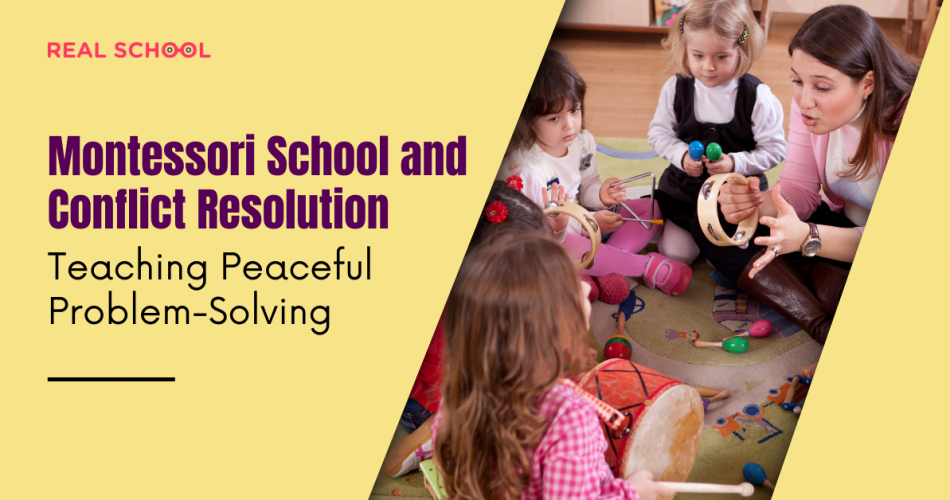Conflict is a natural part of human interactions, and Montessori schools recognize the importance of teaching children constructive ways to resolve conflicts peacefully. Dr. Maria Montessori believed in fostering a sense of peace and understanding in the classroom community. In this article, we will explore how Montessori schools prioritize conflict resolution and teach children peaceful problem-solving skills.
Creating a Peaceful Classroom Culture
In Montessori schools, creating a peaceful classroom culture is paramount. Teachers model respectful communication, empathy, and active listening for students. Children are encouraged to treat one another with kindness and consideration, setting the foundation for peaceful interactions.
Peace Education
Montessori schools incorporate dedicated peace education in their curriculum. Peace education introduces children to the concepts of empathy, cooperation, and conflict resolution. Children are taught to express their feelings, identify emotions, and communicate their needs peacefully.
Peace Corners
Many Montessori classrooms have designated “Peace Corners” or “Peace Tables” where children can go when they need a moment to calm down and reflect. Peace Corners are equipped with tools like calming bottles, breathing exercises, and conflict resolution cards to help children manage their emotions and find peaceful solutions to problems.
Grace and Courtesy Lessons
Montessori schools include “Grace and Courtesy” lessons as part of their curriculum. These lessons teach children the importance of using polite language, taking turns, and respecting personal space. By practicing good manners and respectful behavior, children learn to navigate social interactions peacefully.
Collaborative Problem-Solving
Montessori education emphasizes collaborative problem-solving. When conflicts arise, teachers encourage children to sit down together and discuss the issue calmly. Children are guided to listen to each other’s perspectives and work together to find solutions that benefit all parties involved.
Learning from Conflict
In Montessori schools, conflicts are viewed as valuable learning opportunities. Children are encouraged to reflect on their actions and the consequences of their behavior. By acknowledging and learning from conflicts, children develop a deeper understanding of themselves and their relationships with others.
Non-Violent Communication
Montessori education promotes non-violent communication. Children are taught to express their feelings and needs using words rather than resorting to physical or aggressive behavior. Non-violent communication fosters understanding and empathy in resolving conflicts.
Encouraging Empathy
Empathy is a key component of conflict resolution in Montessori schools. Children are encouraged to put themselves in others’ shoes and understand how their actions affect their peers. Developing empathy helps children develop a sense of compassion and a desire to find peaceful resolutions to conflicts.
Restorative Justice
Restorative justice practices are often employed in Montessori schools as a way to address conflicts. Instead of punitive measures, restorative justice focuses on repairing harm and restoring relationships. Children are encouraged to take responsibility for their actions and make amends in a positive and constructive manner.
Conclusion
Montessori schools prioritize conflict resolution and peaceful problem-solving to create a harmonious and respectful learning environment. Through peace education, collaborative problem-solving, and non-violent communication, children learn valuable skills that promote understanding, empathy, and peaceful interactions with others. By fostering a sense of peace and empathy, Montessori education equips children with essential life skills that extend beyond the classroom and contribute to building a more compassionate and harmonious world.
FAQs (Frequently Asked Questions)
How do Montessori schools address conflicts among students in the classroom?
Are there specific conflict resolution techniques used in Montessori education?
How do Montessori schools promote empathy among children?
What role do teachers play in teaching peaceful problem-solving in Montessori classrooms?
Can conflict resolution skills learned in Montessori schools be applied to other aspects of children’s lives?







